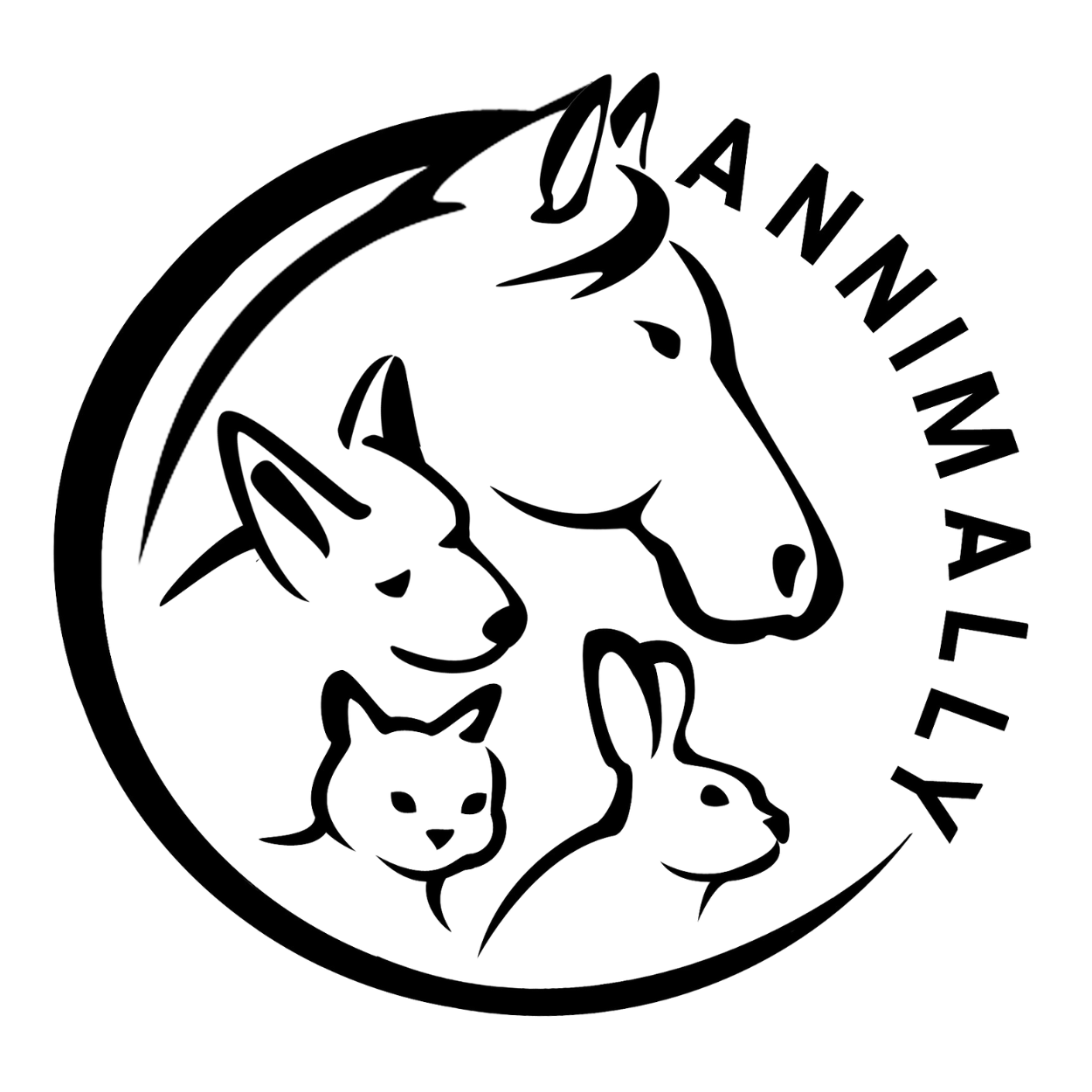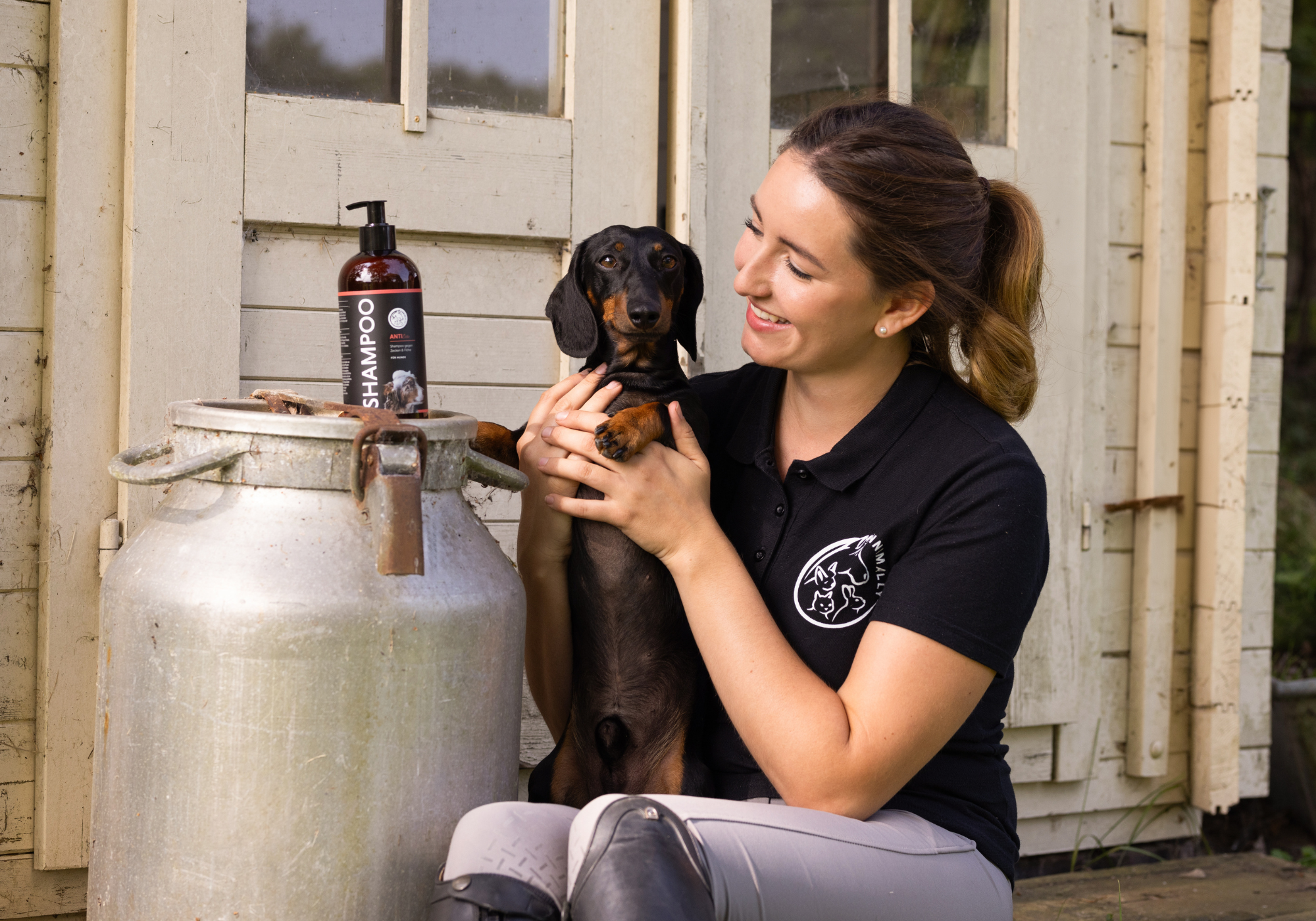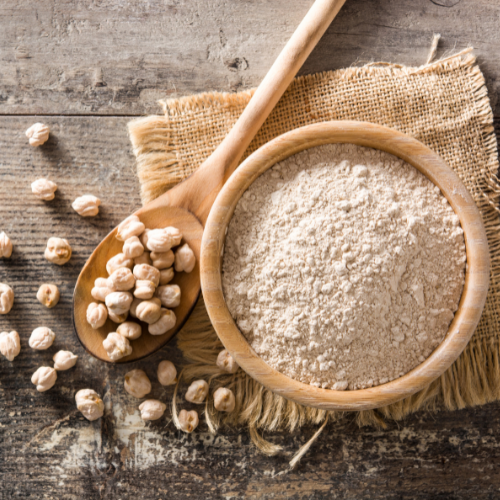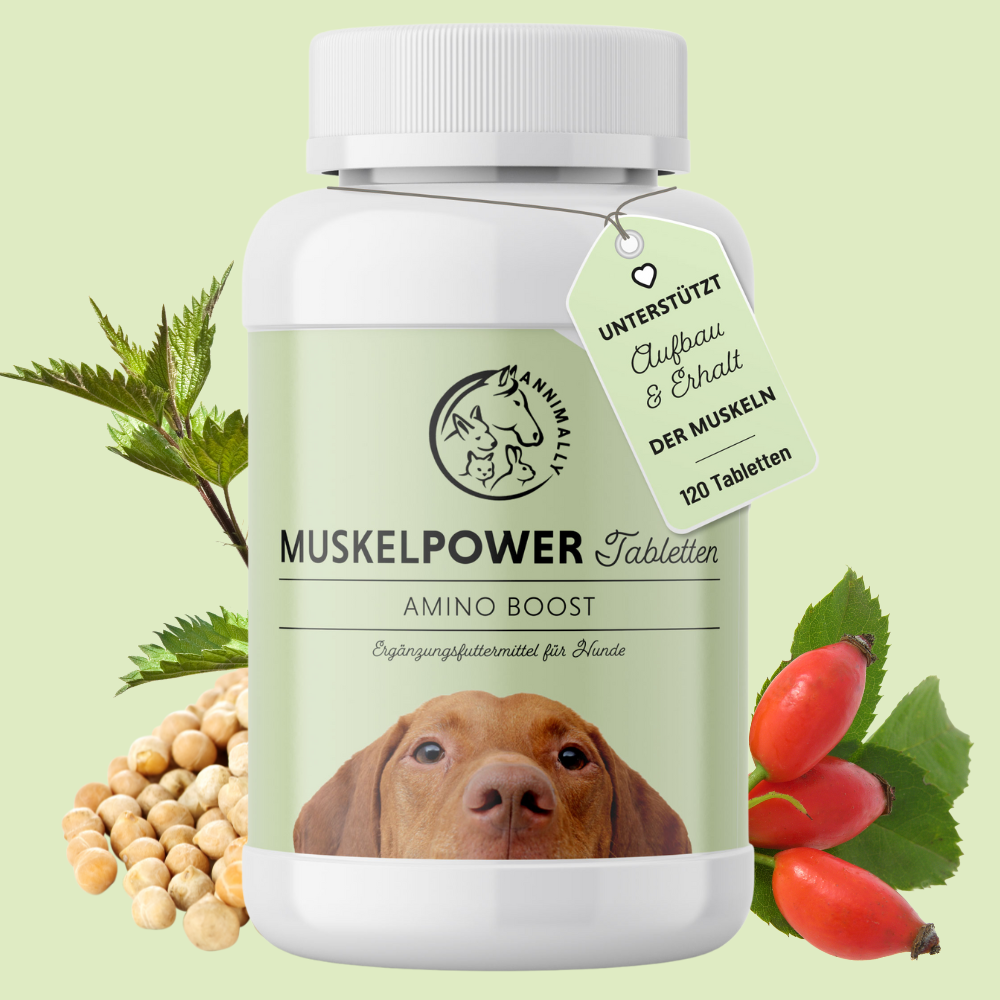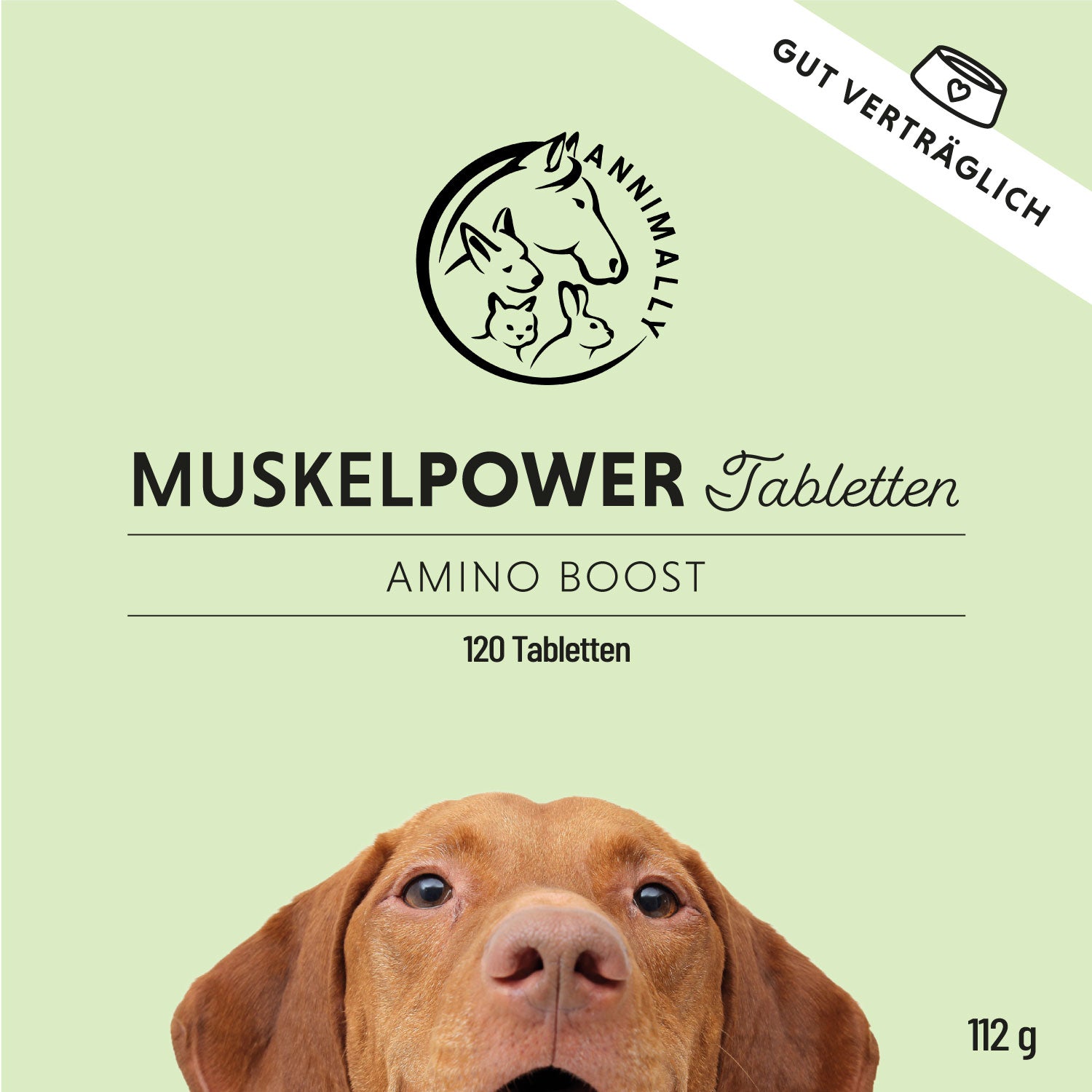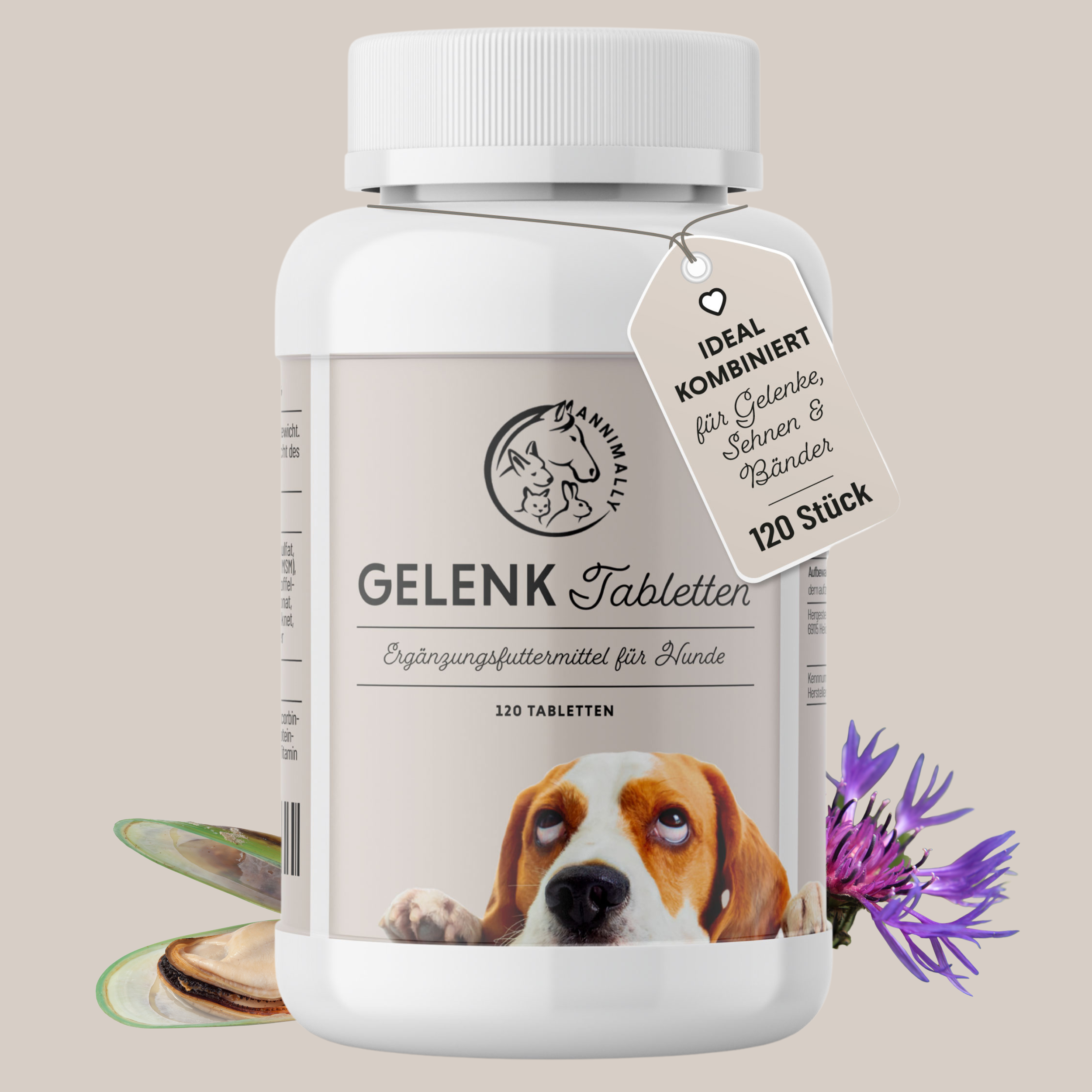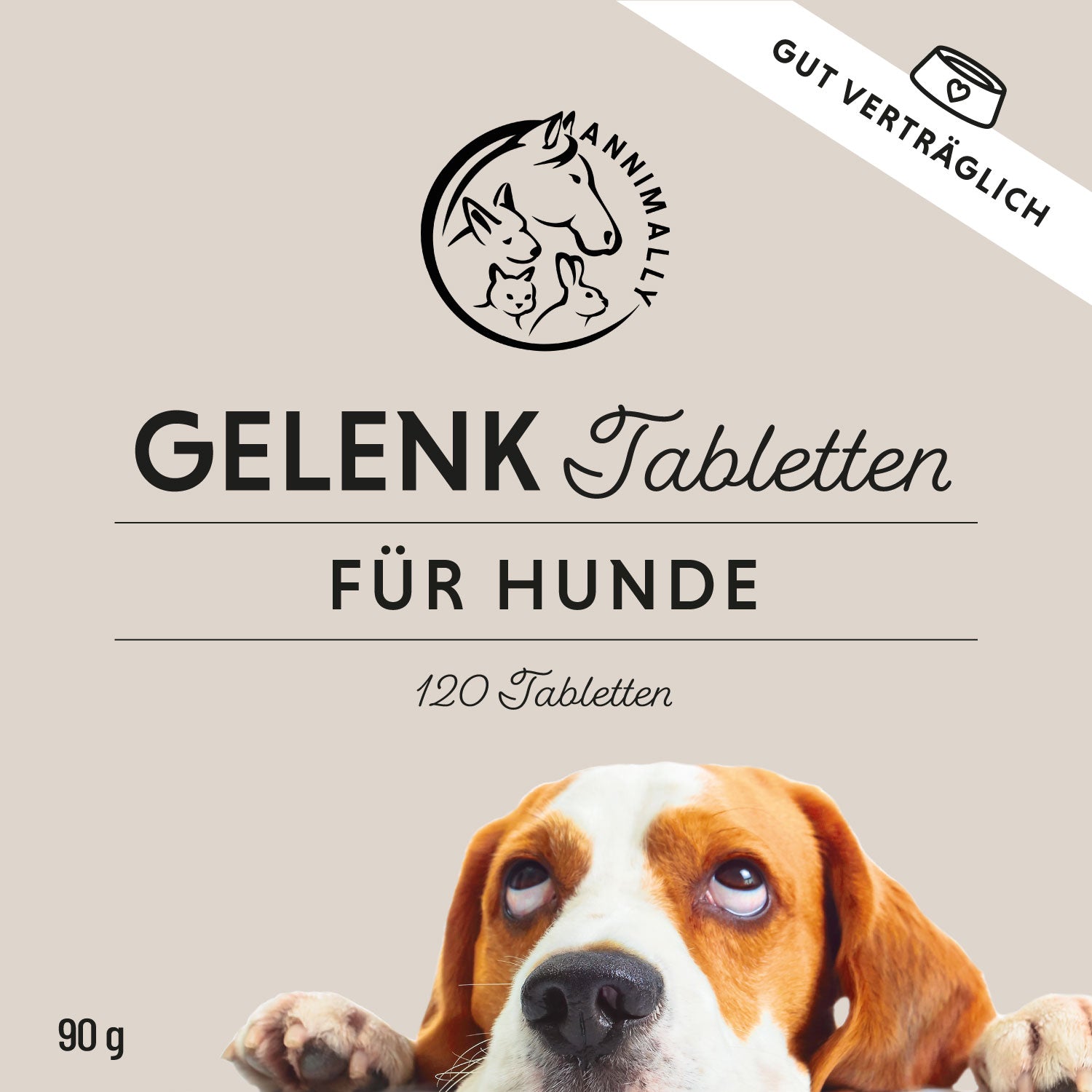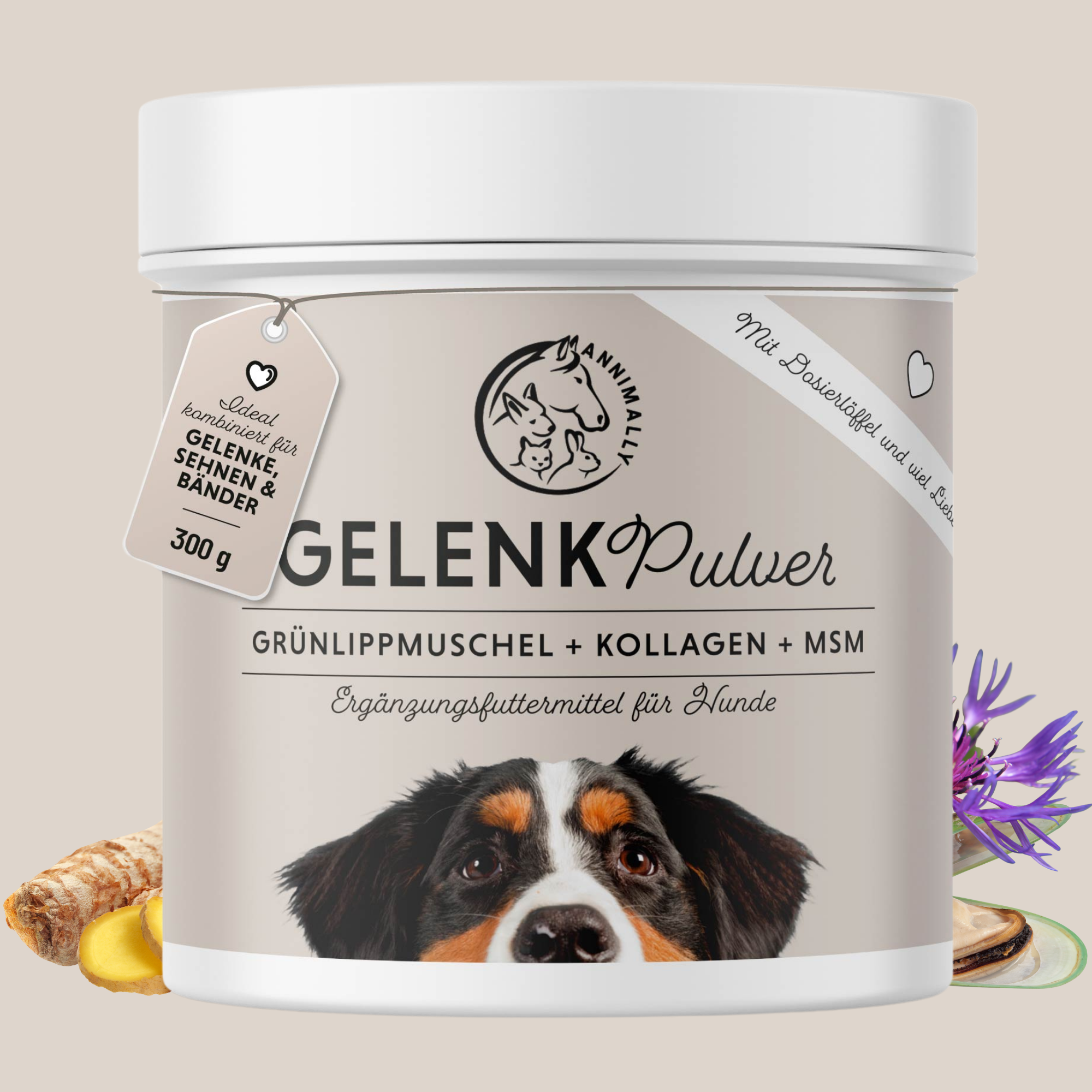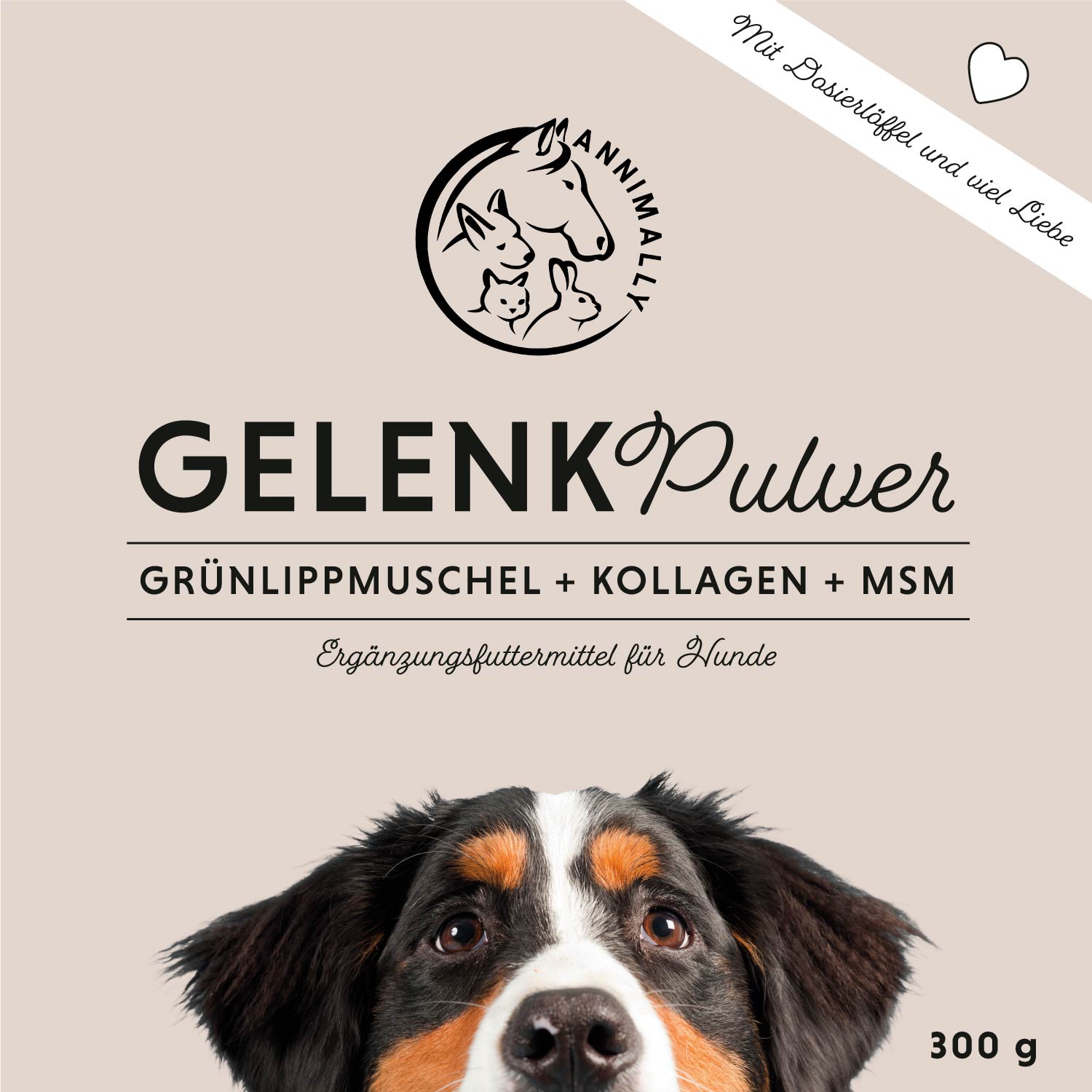Pea protein for dogs – The green power of peas for your four-legged friend
Pea protein for dogs? It may sound unusual at first, but it's a real asset to modern dog nutrition. If you're wondering whether peas, legumes, or plant-based proteins like pea protein are actually good for your dog, you've come to the right place.
In this article, you'll learn everything about pea protein for dogs, including its benefits, nutrients, and effects—and what you should pay attention to when feeding it.
What is pea protein anyway?
Pea protein is extracted from yellow peas. A special process isolates the protein and turns it into a fine powder. The result: a high-quality, plant-based protein that's particularly easy to digest—even for dogs.
Since dogs nowadays often develop allergies or intolerances to animal proteins, pea protein is an interesting alternative in their diet.
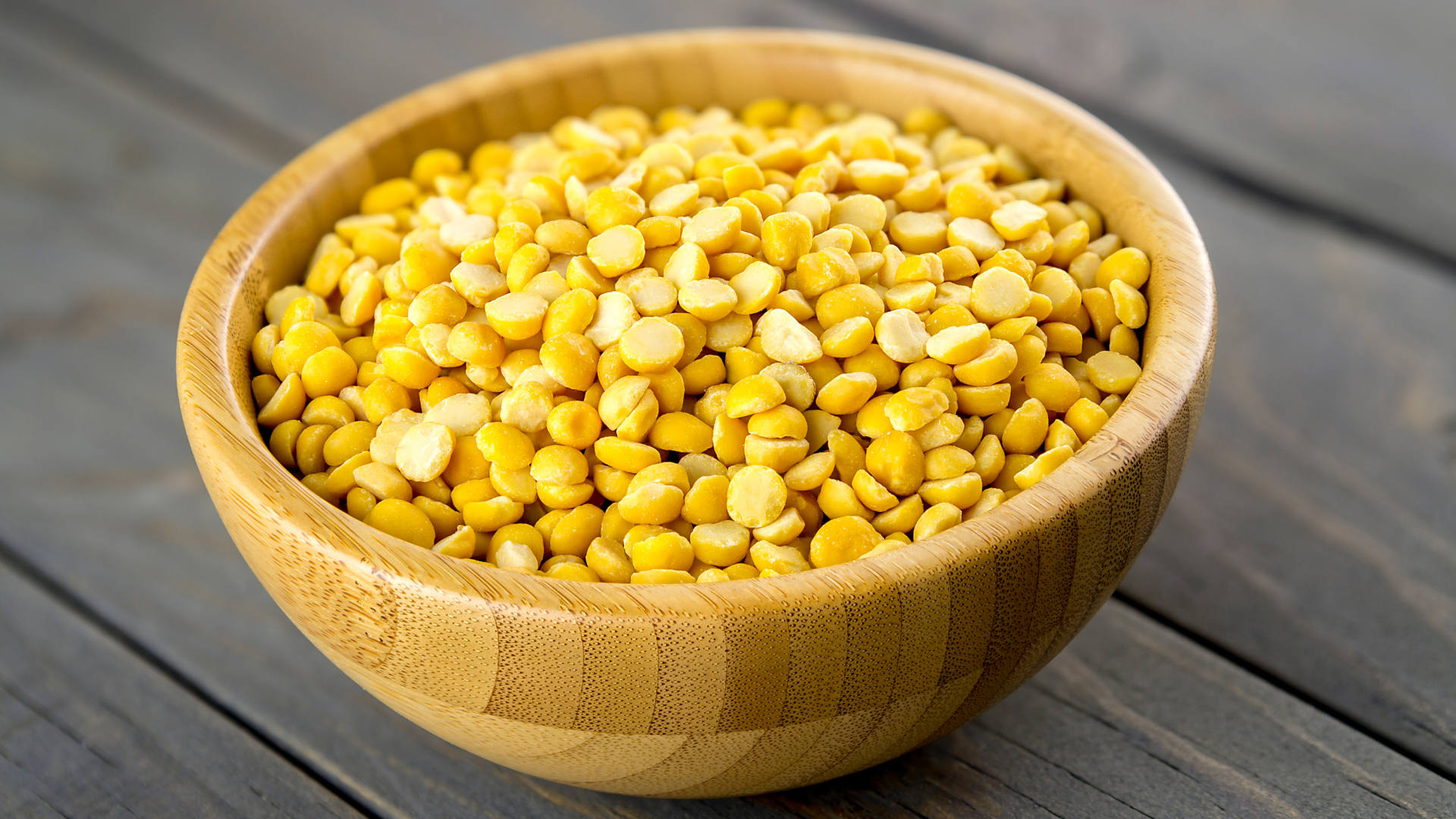
Why is pea protein so popular for dogs?
There are many reasons why pea protein is becoming increasingly common in dog food products:
-
High protein content: Pea protein contains up to 85% pure protein.
-
Valuable amino acids: Your dog receives important building blocks for muscles, coat, skin and immune system.
-
Well tolerated: Ideal for sensitive digestion or as a hypoallergenic ingredient.
-
Rich in nutrients: B vitamins, vitamin A, vitamin C, potassium and many other vitamins and minerals.
-
Sustainable source: Unlike meat, peas are environmentally friendly and conserve resources.
Pea protein in dog food – where is it found?
You can now find pea protein in many products on the market—both dry and wet food and supplements. Pay attention to the ingredients list. It's often labeled as "pea protein," "pea protein concentrate," or simply as a component of the peas or legumes.
Advantages in feed composition:
-
It improves the protein content of the feed without animal protein.
-
It ensures a stable consistency in the dry food.
-
It helps to make the recipe rich in fiber – good for digestion.
How does pea protein affect your dog's health?
The effects of pea protein on your dog's condition can be extremely positive – provided it is used in the right amount:
-
Muscle maintenance & building: Thanks to the proteins and amino acids it contains.
-
Stable immune system: Through vitamins such as B complex, A and C.
-
Healthy digestion: The fiber contained in peas promotes intestinal health.
-
Allergy prevention: Ideal for exclusion diets or sensitive dogs.
-
Blood sugar control: Due to its low glycemic index, it can be supportive in diabetes.
Is pea protein suitable for all dogs?
Basically, yes. Whether young, adult, or old, pea protein can be a valuable supplement for all dogs. It is particularly beneficial:
-
For food allergies
-
For dogs with sensitive digestion
-
For vegetarian or vegan diets
-
As an additive in home-cooked food
Nevertheless, you should keep your dog's individual needs in mind. If you're unsure, a visit to the vet is helpful.
How much pea protein can be included in the diet?
The amount of pea protein in dog food should be balanced. Combined with other proteins (e.g., lamb, fish, or insect protein) creates a complete amino acid profile. Make sure that:
-
the total protein content is between 18–30% (depending on age and activity level).
-
the ingredients are declared transparently.
-
no unnecessary fillers (such as corn or wheat) are included.
What is the difference between whole peas and pea protein?
You might be wondering if you can simply feed whole peas. Of course, snow peas or green peas are healthy—but:
-
They contain less protein.
-
They are harder to digest when raw.
-
When used in large quantities, they can cause bloating.
Pea protein, on the other hand, is concentrated, easily digestible and delivers exactly what is important: high-quality protein.
Are there any risks associated with feeding pea protein?
In rare cases, it is discussed whether a too high pea content (especially in grain-free foods) could lead to an increased risk of heart problems. However, there is no clear evidence for this.
Our tip: Make sure your dog has a balanced diet. Pea protein should be a supplement, not a sole source of food.
Pea protein powder – dose yourself?
Pea protein powder is also available for purchase. This can be useful if you:
-
cook yourself
-
want to precisely control the amount of protein
-
want to supplement specifically (e.g. for sporting dogs)
When using such products, pay attention to:
-
100% pure pea protein without additives
-
Good solubility in feed
-
Origin & quality of the seeds
What offers and products are available?
If you're looking for high-quality food with pea protein, you'll find plenty of options online and in specialty stores. Keep an eye out for:
-
High-quality recipes
-
Clear declaration of ingredients
-
Trustworthy manufacturers
Here are some product categories that often contain pea protein:
-
Grain-free dry food
-
Wet food with vegetables
-
Hypoallergenic diet food
-
Vegan or vegetarian dog food
-
Protein supplements in powder form
Conclusion: Is pea protein good for your dog?
Yes! – Pea protein is a valuable, plant-based protein source that offers your dog many health benefits. It's a suitable alternative to animal proteins, is well-tolerated, nutrient-rich, and sustainable.
If you want to provide your dog with a balanced, protein-rich food, it's worth looking into products containing pea protein. Pay attention to quality, the right amounts, and a varied diet – then your dog will benefit all around.

